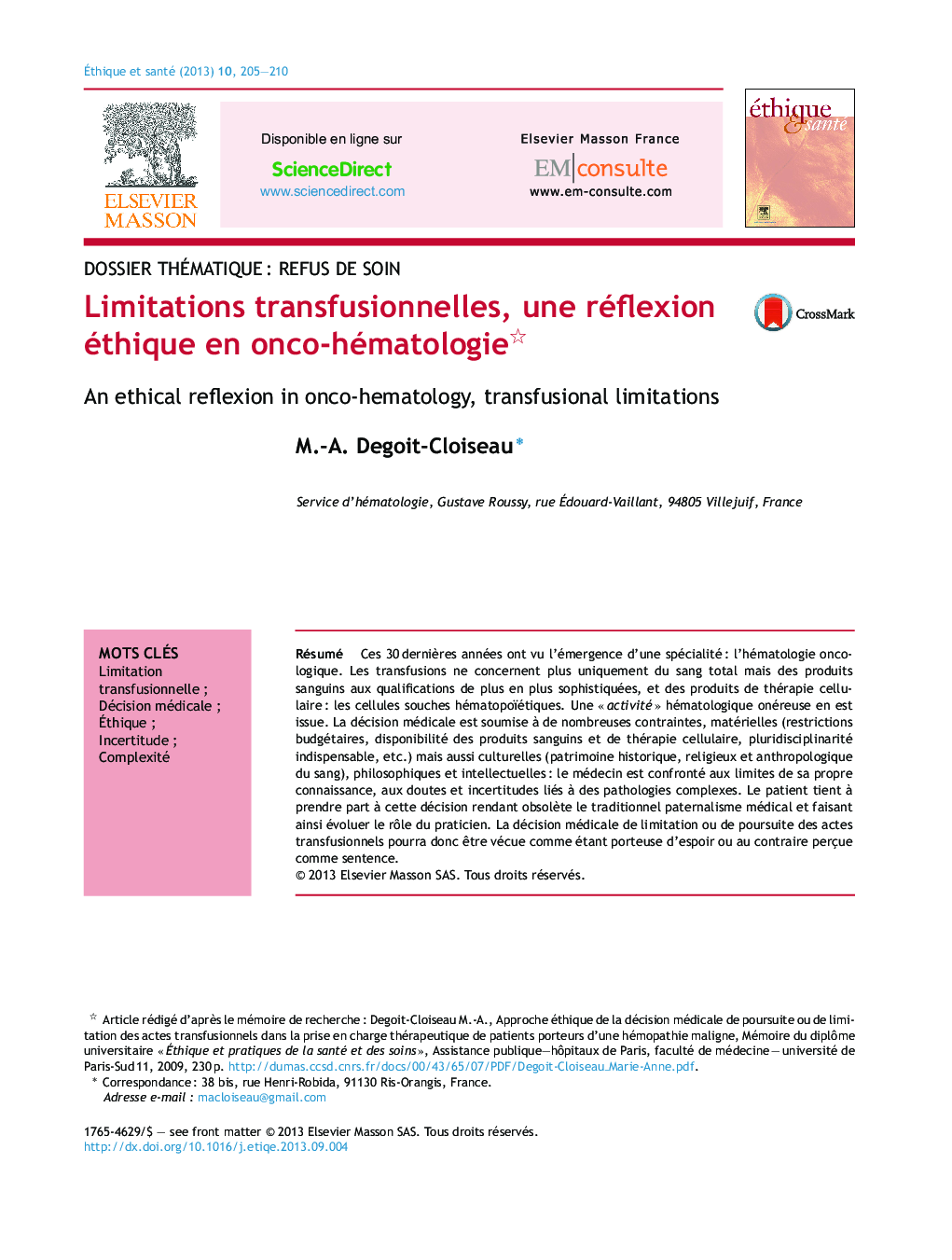| Article ID | Journal | Published Year | Pages | File Type |
|---|---|---|---|---|
| 1072140 | Éthique & Santé | 2013 | 6 Pages |
Abstract
Over the past 30Â years a new specialty has emerged: oncological haematology. Transfusions now no longer concern only whole blood, but also blood products with ever more sophisticated characteristics, and cell therapy products: hematopoietic stem cells. A costly haematological “activity” has resulted from this. Medical decisions are subject to many constraints, material ones (budgetary restrictions, availability of blood products and cell therapy, necessary multidisciplinarity, etc.), but also cultural (due to the historical, religious and anthropological background of blood), philosophical and intellectual ones: the doctor must face the limitations of his own knowledge, the doubts and uncertainties related to complex pathologies. The patient wants to take part in this decision, thus rendering medical paternalism obsolete and leading to an evolution of the practitioner's role. The medical decision to limit or pursue transfusional acts will thus be perceived either as a source of hope or conversely as a condemnation.
Related Topics
Health Sciences
Medicine and Dentistry
Public Health and Health Policy
Authors
M.-A. Degoit-Cloiseau,
